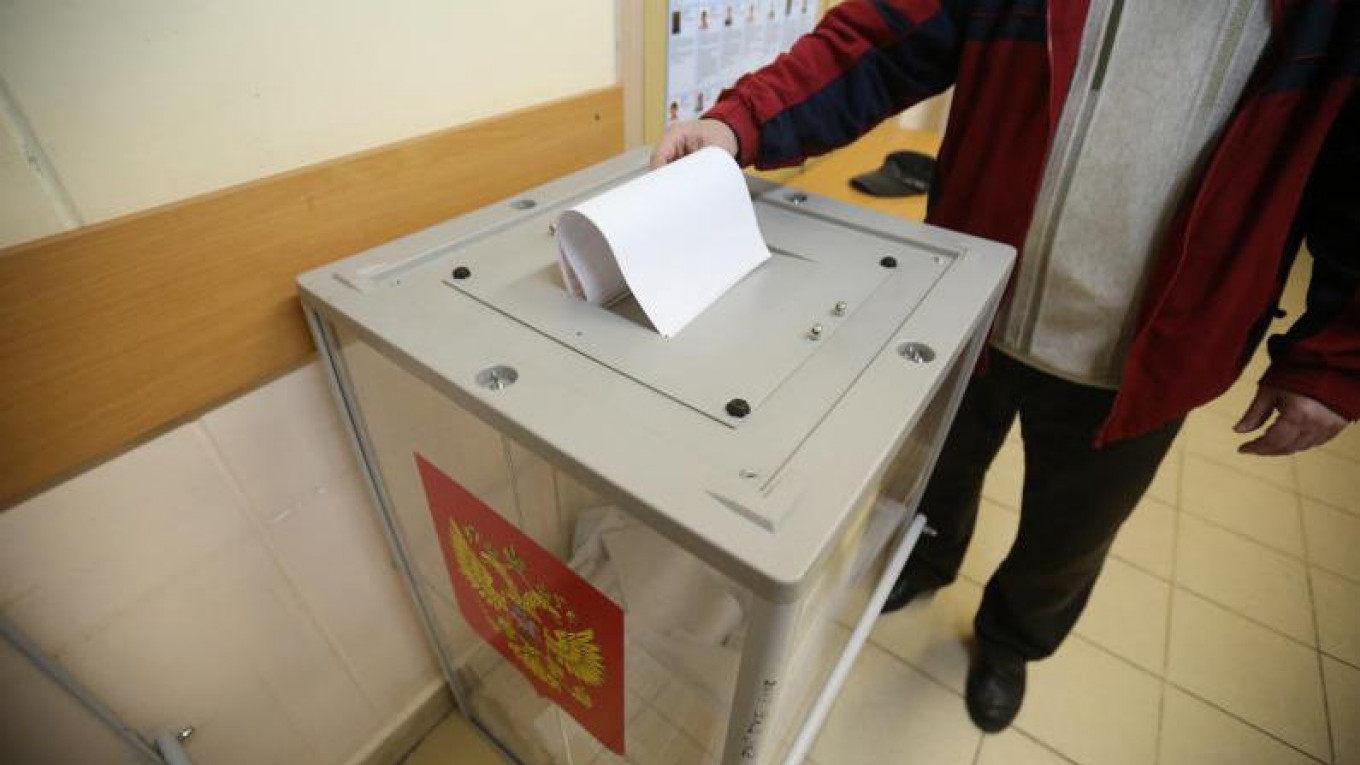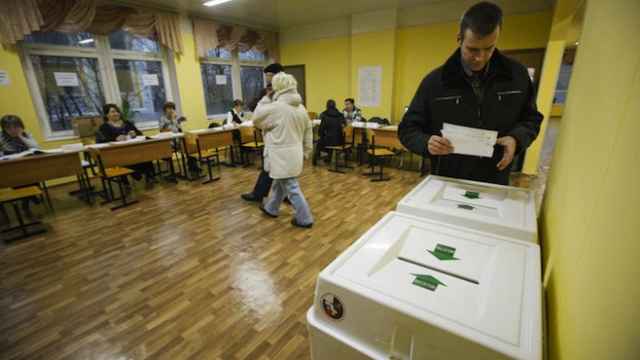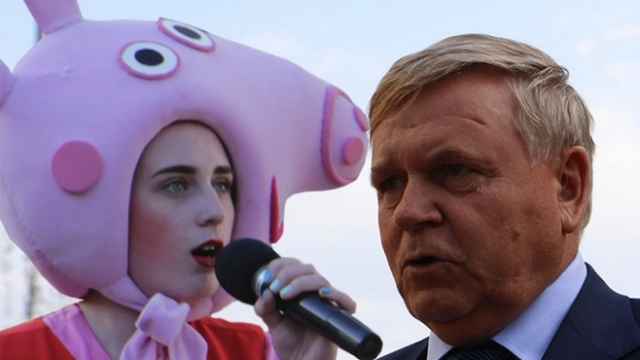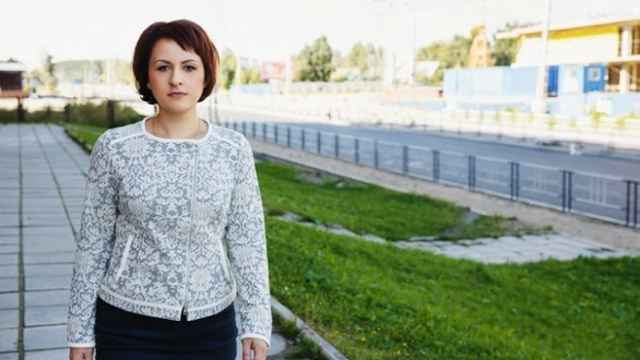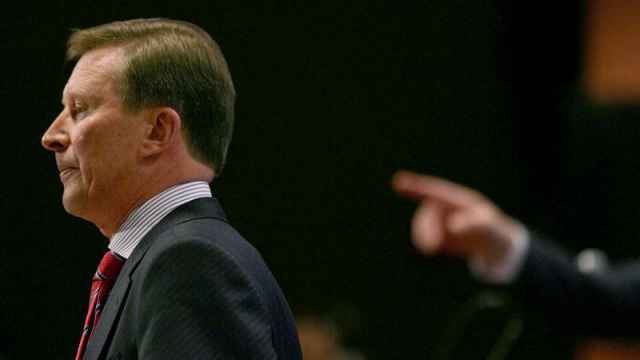Tensions over Crimea and a flurry of new appointments in the upper echelons of government have made many wonder if President Vladimir Putin is planning snap presidential elections, bringing them forward from the planned 2018.
The case for is as follows: the economic situation is dire and, although the euphoria over the annexation of Crimea has not fully worn off yet, the people’s mood could change abruptly. It gets tiring to have to dream up a new war every month just to keep the people united against some common enemy. The decision to move parliamentary elections forward from December this year to September also went off without a hitch.
The active reshuffling of senior government posts also points to likely early elections. The old guard is sent into retirement — some in disgrace, as with former Customs head Andrei Belyaninov, and some with honor, like former presidential administration head Sergei Ivanov, who was transferred nonetheless to a specially invented and humiliating new post as the special representative to the president for ecology and transport.
Putin is sending his ruling elite a signal: cut down on the stealing and do not show off your wealth because it reflects poorly on your patron in the Kremlin. The people are feeling the effects of the crisis, and corruption among members of the establishment irritates them greatly.
But despite all of this, there are reasons to suggest that Putin is planning to hold off elections as long as he can.
The crisis is certainly giving way to a long-term economic downturn. Indicators are gradually but steadily falling, while the growth rates for GDP and production hover near zero. It is a very painful and unpleasant situation. The majority of the population, however, has adapted to the crisis and continues to draw hope from the news that Russia has regained its status as a great power. Leaders can definitely use that and their “import substitution” story to keep the people quiet until 2018.
What’s more, despite the fact that no one is waiting for a strategy and vision of the future from the president, Putin must still have some sort of platform when he runs for re-election. It isn’t possible to create one quickly, so what is the hurry?
If the parliamentary elections in September go off as planned — that is, without major scandals — they will add legitimacy to the system so that leaders can say, “Look, we even hold fair elections and are not afraid of competition!” So why rush into presidential elections?
And most importantly, why would Putin himself want early elections? So that he can have one less year in power? As things stand now, he has a full 18 months before his next term begins, and then another six long years at the helm. Why become a lame duck earlier than necessary?
Putin drew several conclusions from the mass protests of 2011-2012. They convinced him that the mandate he received from “the people,” i.e. ordinary Russians, is much more important than the views of the small and overly outspoken segment of progressive citizens. After returning to the Kremlin, he therefore focused on silencing the voices of that stratum of Russian society. Now they are quiet, and no large-scale protests are anticipated.
And that means there is no need to hold early elections.
Andrei Kolnesnikov is a senior associate and the chair of the Russian Domestic Politics and Political Institutions Program at the Carnegie Moscow Center.
A Message from The Moscow Times:
Dear readers,
We are facing unprecedented challenges. Russia's Prosecutor General's Office has designated The Moscow Times as an "undesirable" organization, criminalizing our work and putting our staff at risk of prosecution. This follows our earlier unjust labeling as a "foreign agent."
These actions are direct attempts to silence independent journalism in Russia. The authorities claim our work "discredits the decisions of the Russian leadership." We see things differently: we strive to provide accurate, unbiased reporting on Russia.
We, the journalists of The Moscow Times, refuse to be silenced. But to continue our work, we need your help.
Your support, no matter how small, makes a world of difference. If you can, please support us monthly starting from just $2. It's quick to set up, and every contribution makes a significant impact.
By supporting The Moscow Times, you're defending open, independent journalism in the face of repression. Thank you for standing with us.
Remind me later.



